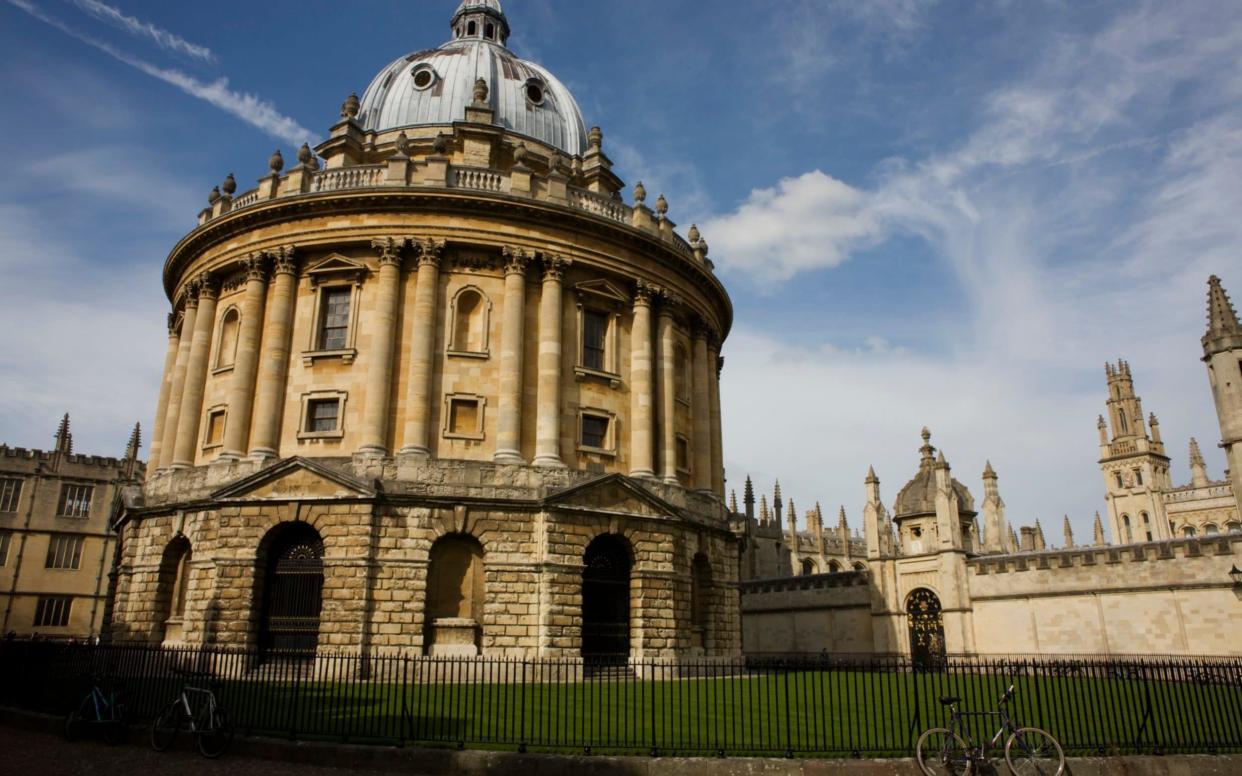'Joke' candidate elected President of the Oxford Union

A ‘joke’ candidate has been elected as President of the Oxford Union despite graduating from the university seven years ago.
Former special adviser James Price, who admitted he was only running because “I think it’s funny” was elected after one candidate dropped out over racially insensitive comments made by a candidate on his slate, and the only other remaining candidate lost to Re-Open Nominations (RON) after being accused of making racially charged comments towards other members of the Union’s committee.
A second election for the office of President only was then hacked, resulting in over 500 illegitimate votes being cast for the same candidate from seven IP addresses mostly located overseas.
It is the first time someone who is not currently a student at Oxford has been elected to the prestigious post, at the helm of the largest and most famous debating society in the world.
Mr Price, who used to work for Baroness Evans, Leader of the House of Lords, said: “My manifesto may have been more lighthearted than many, but I have been passionate about the Union for many years.
I’m pretty again. Nature is healing. pic.twitter.com/BX2VD0cQwh
— James Price 🇭🇰 (@jamespriceglos) July 5, 2020
“I look forward to helping the Union, perhaps too often introspective and prone to navel-gazing, to return to its founding principles. The Oxford Union, famously dubbed “the last bastion of free speech” must be an inclusive, accessible and diverse society that is open to all, regardless of background.”
In his manifesto, Mr Price said: “I am running because I think it’s funny, and also because I would be better than anyone else. I have already stood for Parliament, so won’t feel the need to act like most union hacks tiresomely do. I’ve handled real budgets and managed teams of actual grownups in multiple jobs in the real world.
“I know how to run events and will be able to personally invite lots of interesting speakers, as well as the less interesting ones. After the omnishambles you’ve recently had, you could do worse. The Price is right.”
Current President Beatrice Barr said: “This was an unprecedented result, following much more public scrutiny than we are accustomed to. We’ve concluded an election that ought to have ended almost a month ago. I hope that the additional media attention won’t distract current members from the events we exist to put together, and our work on institutional reform.”
Mr Price, who currently works in communications, secured 431 votes, compared to Jeremy Bararia on 375 and Amy Gregg on 225. Joseph Mochhoury got 30 votes.
This term’s election was conducted online for the first time due to coronavirus. But in the run up to the first ballot in June, one candidate who was not running for an officer position was publicly condemned for invoking the George Floyd protests in ‘hack’ message sent to members of the Union in an attempt to gather votes.
Oh don’t mind me, just busy apparently not caring about things 😇 #ThePriceIsRight pic.twitter.com/twxKY59aI9
— James Price 🇭🇰 (@jamespriceglos) June 19, 2020
Following the outcry, all four officer candidates - President, Librarian, Treasurer, and Secretary - failed to nominate themselves for the elections by the deadline of 3 pm on that day, effectively dropping out of the race.
A week later, Members of the Union voted to re-open nominations (RON) for the only presidential candidate, Jack Solomon, who had faced severe criticism following substantial allegations by the Secretary, Cansu Uyguroglu, of racist comments he had made in the past.
In total, 666 votes were cast, with Solomon receiving 300 while RON obtained 325 votes, sparking a re-run of the presidential election.
This prompted Mr Price to stand, despite having graduated from Worcester College in 2013.
On the day of the election on June 19, the Returning Officer for the Oxford Union announced a technical issue with the online voting meant there would be no declaration of results and referred the issue to an Election Tribunal.
The Tribunal found the ‘Mi-Voice’ database of registered votes was improperly accessed and over 500 votes were cast illegitimately.
They recommended that a third-election be held before the end of July with only the 1,783 members who registered in June able to cast their votes again. This decision was subject to approval by the Standing Committee.
Amid concerns about the security and public relations should a third poll be held, the Standing Committee decided instead to count the “unsullied” votes from the second poll, discounting 507 votes cast from one of the seven IP addresses, which resulted in Mr Price being elected.


